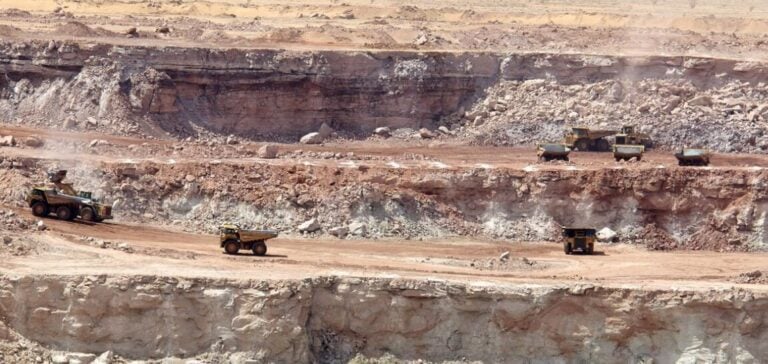Orano, which has been present in Niger for over 50 years, has contributed to the development of the country’s uranium potential through its subsidiaries and in collaboration with its partners. The company has always advocated a responsible and transparent approach, in consultation with the State of Niger and local stakeholders. This collaboration took shape in the global partnership agreement signed in May 2023, aimed at enhancing local resources while respecting international environmental and social standards. Despite this, Niger has withdrawn Orano’s license to operate the Imouraren uranium mine.
Market context and opportunities
With uranium prices on the rise, current market conditions were conducive to the resumption of operations at the Imouraren site. In response to requests from the Niger authorities, Orano proposed a technical solution that would enable the deposit to be developed rapidly. This proposal included substantial investments in infrastructure and technology to ensure efficient and sustainable operations. Infrastructure had been reopened by June 4, 2024 to prepare for the arrival of construction teams and keep work moving forward. This initiative demonstrated Orano’s commitment to revitalizing the project by creating local jobs and supporting the region’s economic development.
Impact of the decision on regional development
The decision by the Niger authorities to withdraw the mining permit for the Imouraren deposit has Orano concerned about the economic and social repercussions for the region. Withdrawal of the permit is likely to hinder economic, social and societal development in northern Niger, impacting local communities that have benefited from mining activities. The shutdown could also lead to a loss of confidence in Niger’s mining sector on the part of international investors, jeopardizing future investment projects in the country.
The Imouraren deposit, one of the largest uranium deposits in the world, represents a major source of revenue for Niger. Exploitation of this deposit would have generated significant economic spin-offs, notably through the creation of direct and indirect jobs, the development of local infrastructure and a contribution to government tax revenues. Closure of the site could therefore have long-term negative consequences for the region’s economic development, increasing the vulnerability of local communities already affected by difficult living conditions.
Reactions and outlook
Orano remains open to dialogue with the Niger authorities to find a solution to this situation. The company intends to continue playing an active role in the development of Niger’s mining sector and supporting local communities. Orano has expressed its willingness to keep all channels of communication open with the State of Niger in order to discuss possible alternatives for relaunching the Imouraren project. The aim of this approach is to find a compromise that would benefit all stakeholders and enable the region’s economic and social development objectives to be pursued.
However, the company plans to challenge this decision before the relevant national and international judicial bodies, in order to defend its interests and those of its local partners. Orano could resort to international arbitration to resolve this dispute, citing the commitments made by the State of Niger under the partnership agreements it has signed. Although complex and potentially time-consuming, this legal process would be designed to protect Orano’s investments and ensure compliance with bilateral agreements.






















